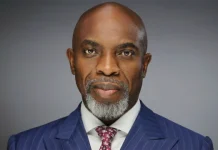The American government has invested $200 million to programs in Nigeria promoting gender equality and women’s empowerment.
US Ambassador to Nigeria, Mary Leonard, said that a significant portion of the funding was intended to address women’s issues and empower Nigerian women while speaking at the Gender and Inclusion Summit 2022, which was organized in Abuja by the Policy Innovation Centre, an initiative of the Nigerian Economic Summit Group.
She noted that “the United States is dedicated to encouraging women empowerment in Nigeria” and said that countries with gender equality saw more economic growth.
Shubham Chaudhuri, the country director for Nigeria for the World Bank, asserted that without the empowerment of women, Nigeria’s aim to bring 100 million people out of poverty would be unattainable.
Chaudhuri said, “In Nigeria, the goal is to lift a 100 million Nigerians out of poverty. It is simple fact that without full economic participation and empowerment of women and girls, Nigeria will not attain that goal.”
He stressed the need for the government to partner with communities and private sector to empower girls and women.
Also, during the panel, the Minister of Finance, Budget and National Planning, Dr Zainab Ahmed, said that the Federal Government was making effort to driving gender inclusion in the federal budgets and projects. She noted that women had been the major beneficiaries of the government’s cash transfer programme for poor and vulnerable Nigerians.
Chairman of NESG, Niyi Yusuf, cited the Global Gender Gap Report 2022 which showed that gender equality was far from being realised,
“It will take another 132 years to close the global gender gap. The pandemic has done more than open our eyes to the economic vulnerability of our nations. It also opened our eyes to the plights women and other marginalized groups face,” he said, noting that statistics showed that the pandemic had disproportionately impacted women and other marginalised groups.
The NESG chairman said responsibility was on everyone to pursue this fundamental call to human rights, which was a mission to save everybody from wealth loss.
“On Educational Attainment, Nigeria records higher levels of parity in secondary education and tertiary education enrolments. However, both shares of men and women in secondary education in 2022 were lower than in 2021, while both increased in tertiary education.”













